CUET 2023 English Answer Key for all shifts is made available for download here. NTA to release CUET Answer Key 2023 PDF for English soon on cuet.samarth.ac.in. Download CUET 2023 English Question Paper PDF
Candidates can download the answer key and question paper PDFs for CUET UG 2023 English exam using the links given below.
CUET 2023 English Answer Key and Question Paper with Solutions PDF
| CUET 2023 English Question Paper with Answer Key | Check Solution |

CUET 2023 English Questions with Solutions
Question 1:
What is the name of the girl sailing on the boat?
Which of the following things are found on the boat?
Match the words in List I with their meanings in List II.
LIST I LIST II
A. slime I. any unpleasant thick liquid substance
B. bilme II. to be very afraid of something
C. gaze III. extreme and forceful
D. dread IV. to look steadily for a long time
What is the relation between the two on the boat?
Choose the correct meaning of the word SODDEN.
Who adopted the pen name Premchand?
According to the passage, Anandi is the heroine of:
Match List I with List II to complete the information in the table.
LIST I LIST II
A. Dhanpat Rai I. Birth place of Premchand
B. Nawab Rai II. Pen name used for short stories
C. Premchand’s III. Premchand’s father
D. Premchand’s IV. pen name used for short stories
One of Premchand’s short stories is about a character from real life, named Kazmi who was a:
According to the passage, who is responsible for Premchand learning Urdu and Persian?
Match List I with List II to complete the information given in the table:
List I List II
A. Persuasive Speech i. transfers knowledge
B. Entertaining Speech ii. have a touch of reality
C. Informative Speech iii. changes mindsets
D. Anecdote iv. makes you feel good
The elements of an Entertaining Speech are -
"An entertaining speech sells or promotes happiness and GRATITUDE. Replace the underlined word with its synonym."
Fill in the blank with the correct option to state one of the features of the Entertaining Speech.
While presenting an Entertaining Speech, ___________ should be taken care of for effective outreach.
Which of the following is not an example of an Entertaining Speech?
Choose the correct Passive form of the sentence: "This book will change your life."
Out of the four alternatives suggested, select the one which best expresses the following in Passive Voice:
They are teasing you.
Out of the given options, choose the Direct Speech for the sentence:
He exclaimed sadly that he was undone.
Pick the correct Indirect Speech for the given sentence: "Rakesh said to Mahesh, 'Go away'."
Rearrange the phrases to make a meaningful sentence:
A. type of my heart could soften
B. in some objects including human tissue
C. penetrate that Roentgen
D. discovered a new
Rearrange the given phrases to form a sentence with superlative degree of comparison:
of all the metals / iron / is the most useful.
The phrase "VIVE LA FRANCE" means:
Choose the correct meaning of the expression 'TOUR DE FORCE':
Choose the correct option that can replace the word 'CHAUVINIST':
Match the words in List I with their meanings in List II
List I List II
A. Oracle I. A person skilled in foreign languages
B. Pundit II. one who can be fooled easily
C. Impostor III. The advice given by Gods
D. Gullible IV. a learned man
Match the blanks in List I with suitable Articles in List II
List I List II
A. ______ BBC is starting a new campaign. I. No article
B. Everyone was born by ______ definition. II. an
C. The COVID Pandemic is ______ universal problem. III. a
D. ______ heart of the UNESCO heritage site. IV. the
Choose appropriate option to complete the following sentence: Vikram wrote ________ letter to his university yesterday but he forgot to post it.
Convert the following sentence into its Exclamatory form:
"I wish I were young again!"
What is delicious is an Exclamatory sentence for which of the following Assertive Sentences?
Fill in the blank with the correct Preposition: The gift was so beautiful that he was overwhelmed _______ joy.
Which of the following statements is incorrect?
Fill in the blank with appropriate Modal: You ________ obey your parents.
Choose the appropriate option to complete the following statement: "After the meeting concluded, I ________ give my side of the story."
The first thing to be written while writing a formal letter is ___________
Which amongst the following is NOT part of an informal letter?
Which amongst the following options carries the correct spelling?
Identify the incorrect example of Past Perfect Tense from the given options:
Match the Phrasal Verbs in List I with their meanings in List II
List I List II
A. stand up for I. removed
B. strike off II. become possible
C. turn up III. support
D. turn against IV. oppose
Choose the sentence in which the Phrasal Verb use of 'Polish off' has been used correctly:
Match the words in List I with their meanings in List II
List I List II
A. Cite I. to quote words from a book
B. Petrol II. place where a building is situated
C. Site III. Fuel is liquid used for vehicles
D. Bite IV. to go around checking for safety
Rearrange the jumbled words to form a meaningful sentence:
A. displacements from
B. further lens
C. large-scale
D. special
E. economic zones
Choose the word that is opposite in meaning to "SPURIOUS":
The food served for lunch was INSIPID. Rewrite the sentence by giving the antonym to the underlined word.
Match the blanks in List I with the correct Adverbs in List II
List I List II
A. He will pay ______ for his mistake. I. ever
B. I do not remember ______ having stories before. II. dearly
C. I think that Ravi succeeded in scoring a century ______ III. scarcely
D. ______ does anyone believe in ghost these days. IV. barely
Sanjeev stayed at work ________ he could complete the pending work.
Out of the four alternatives, choose the one that suits the best as a question tag for the sentence: She rarely attends the class, ________?
Rearrange the words in the correct order to form a meaningful sentence:
A. ever
B. happens
C. by
D. chance
E. nothing
What is the meaning of the phrase 'A feather in one's cap'?
Read the text below and identify the options that shows the use of an idiomatic expression:
I went to stay with my cousin last month. We are of the same age but have very little in common. He loves sports and I hate it.
Choose the option that serves as an Adjective Clause in the sentence: The boy, whom you see bowling, is my cousin.
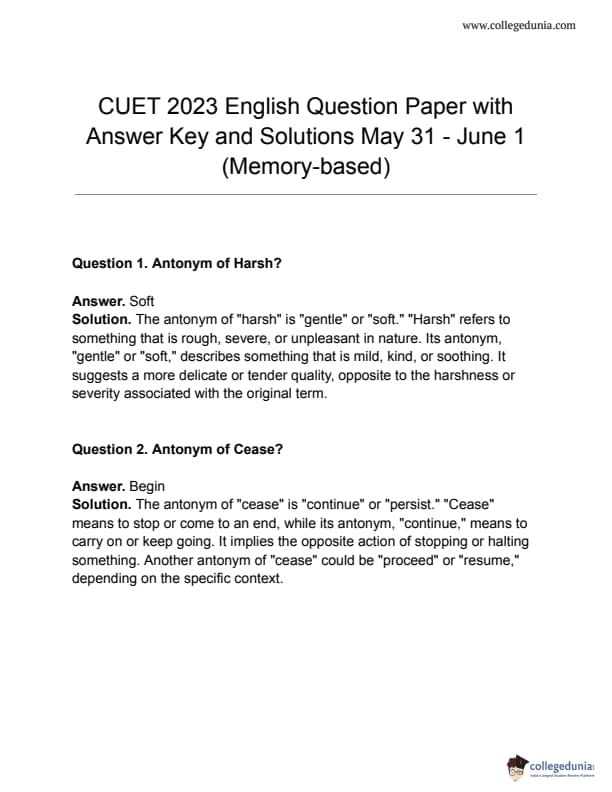
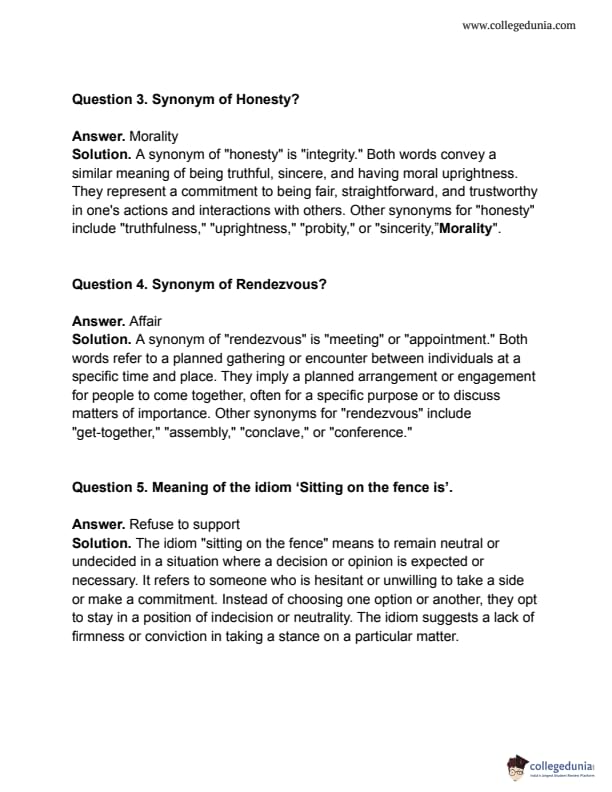
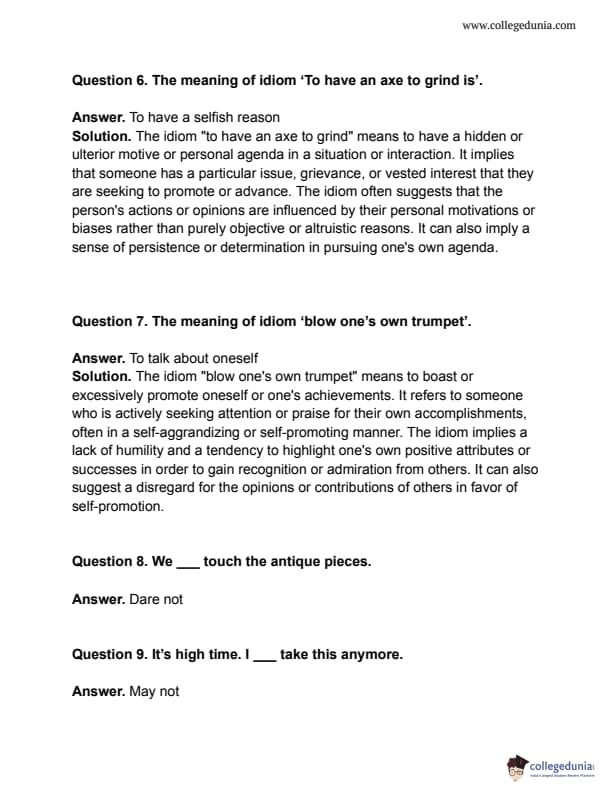
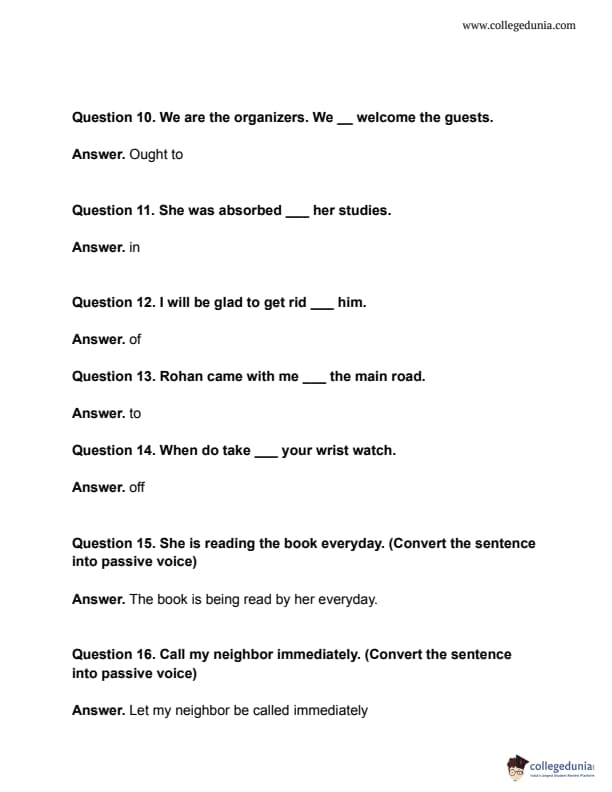
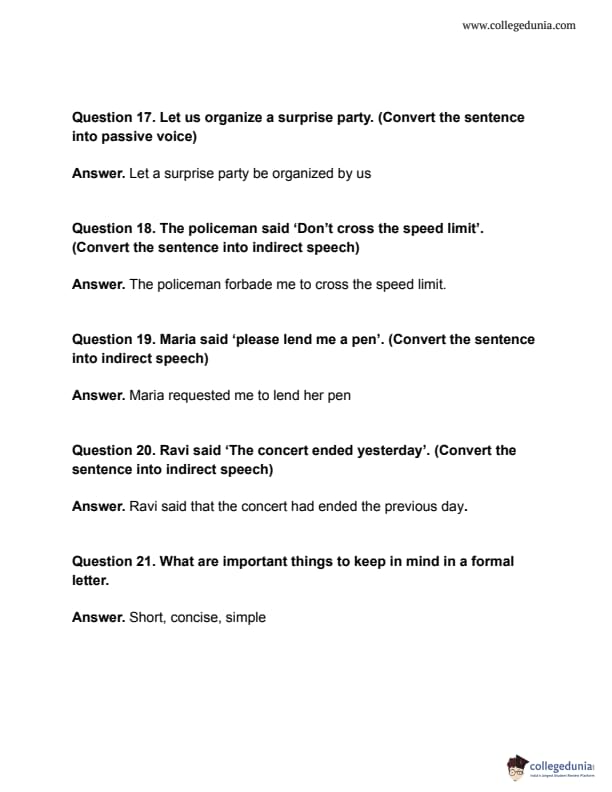
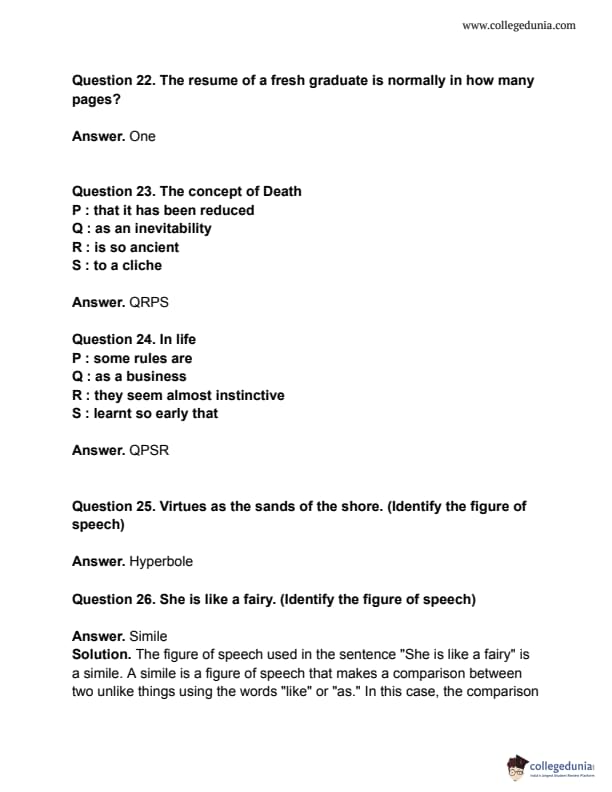
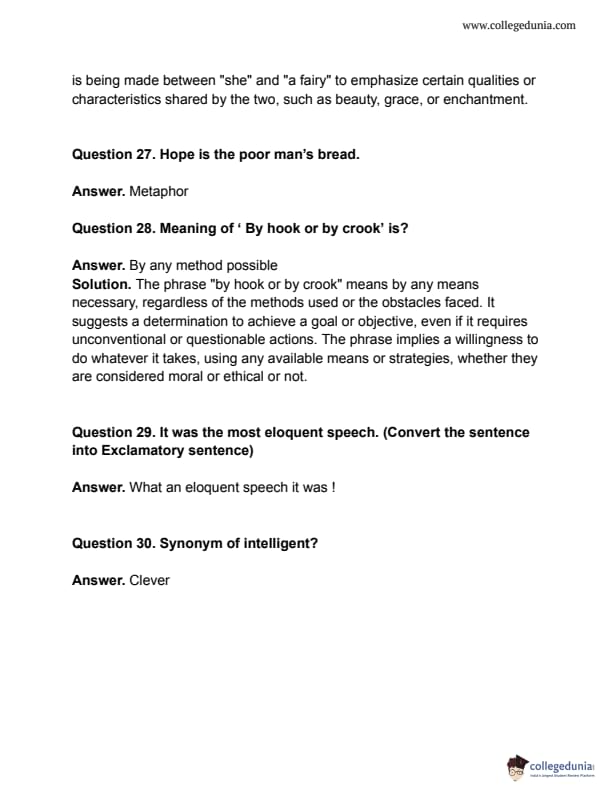
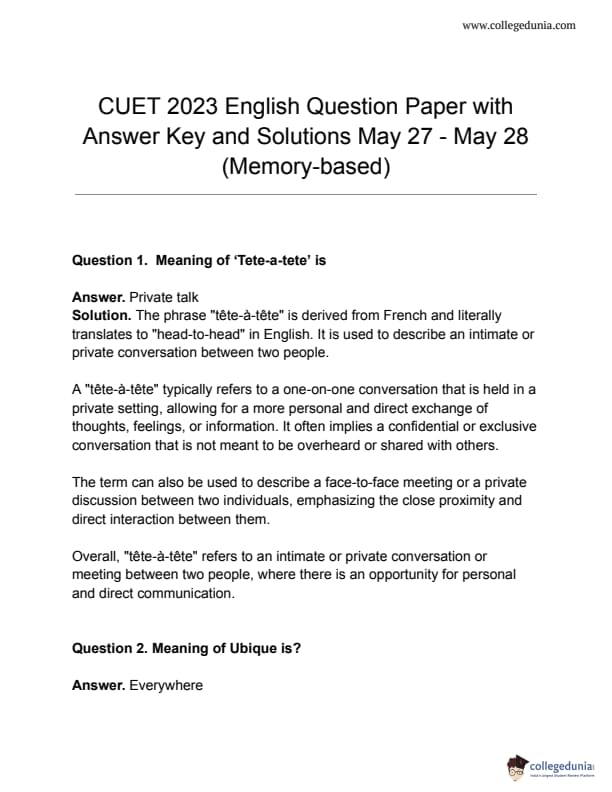
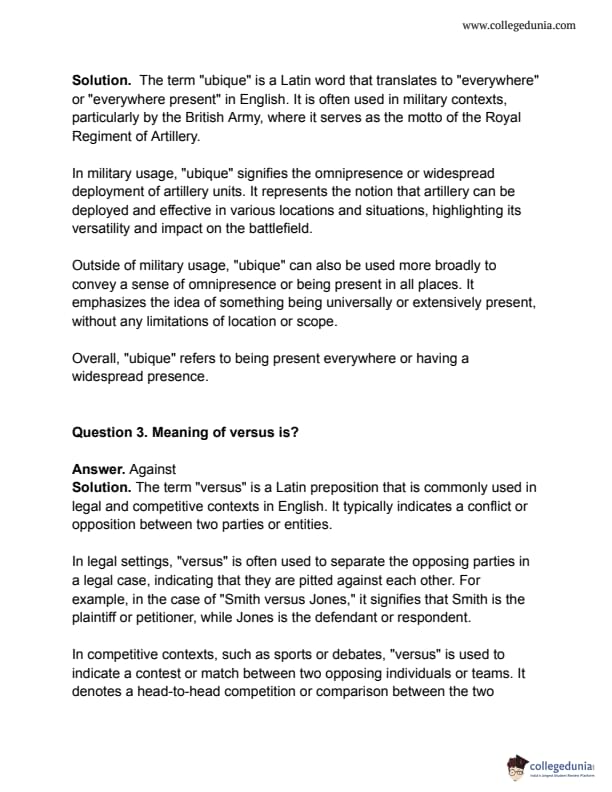
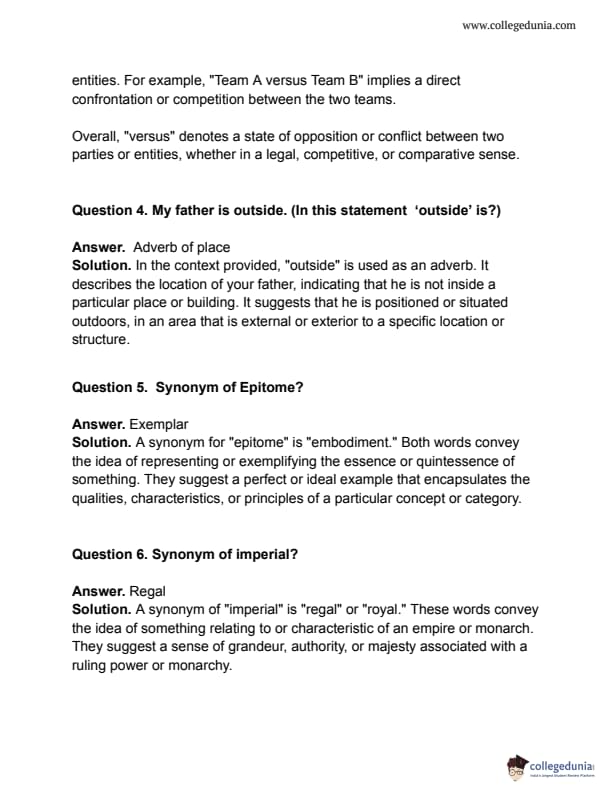
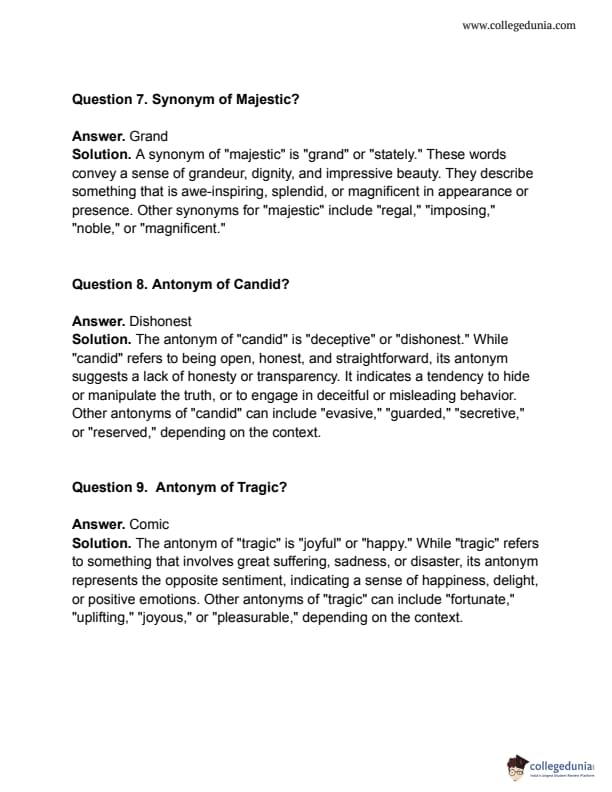
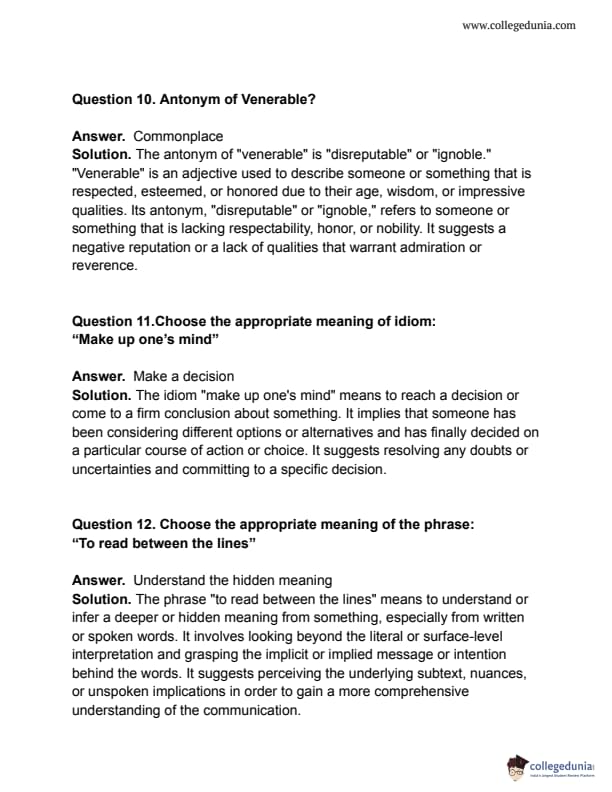
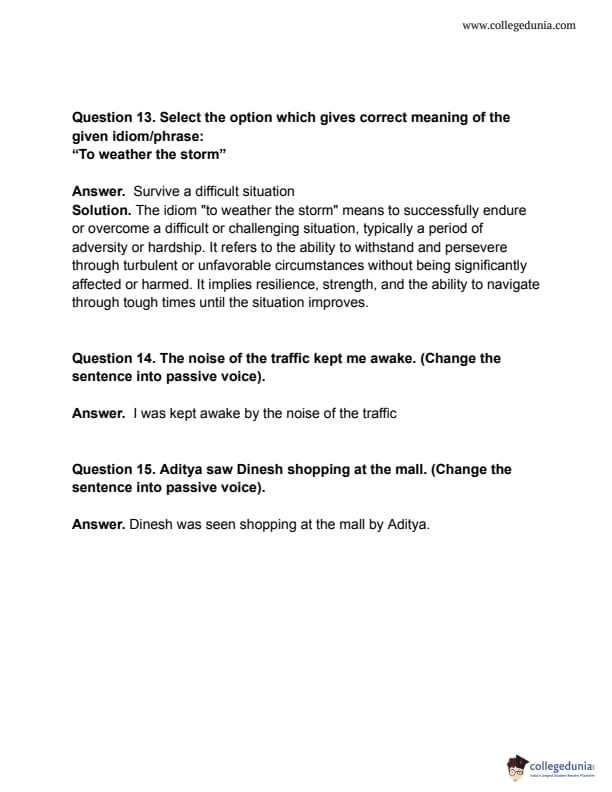
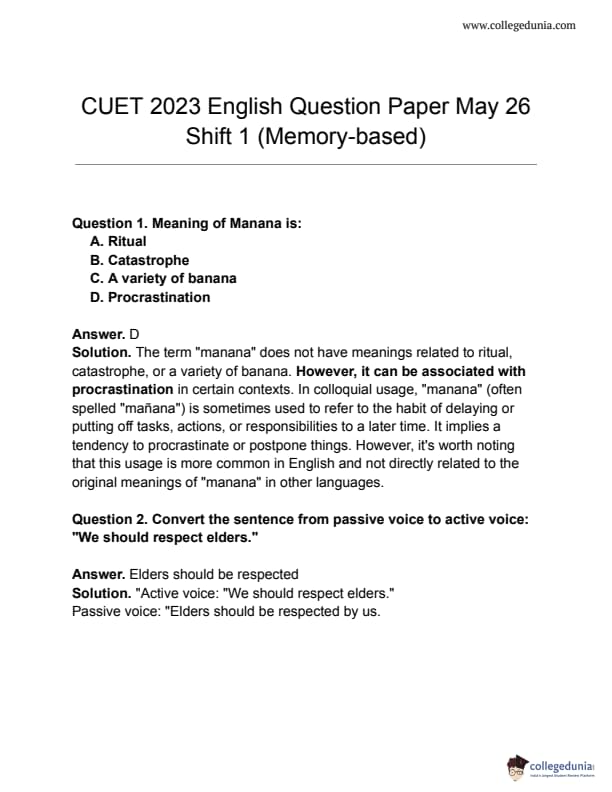
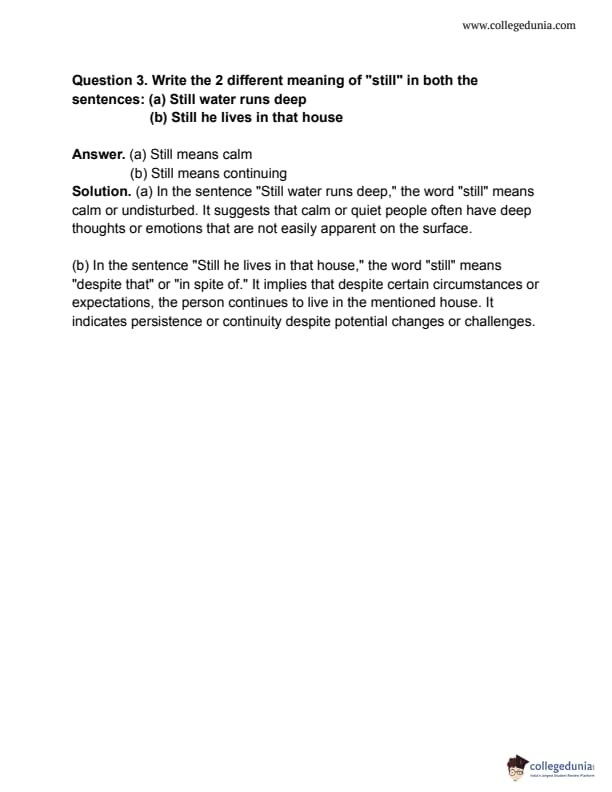
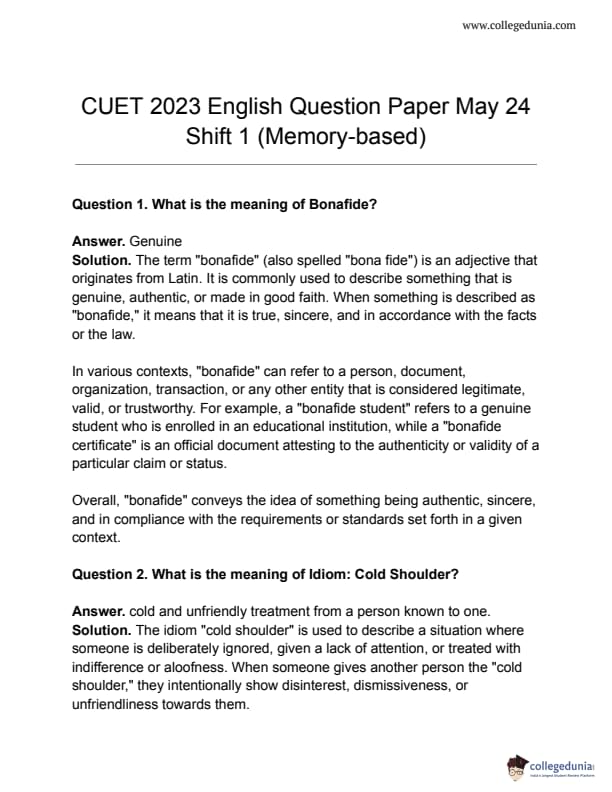
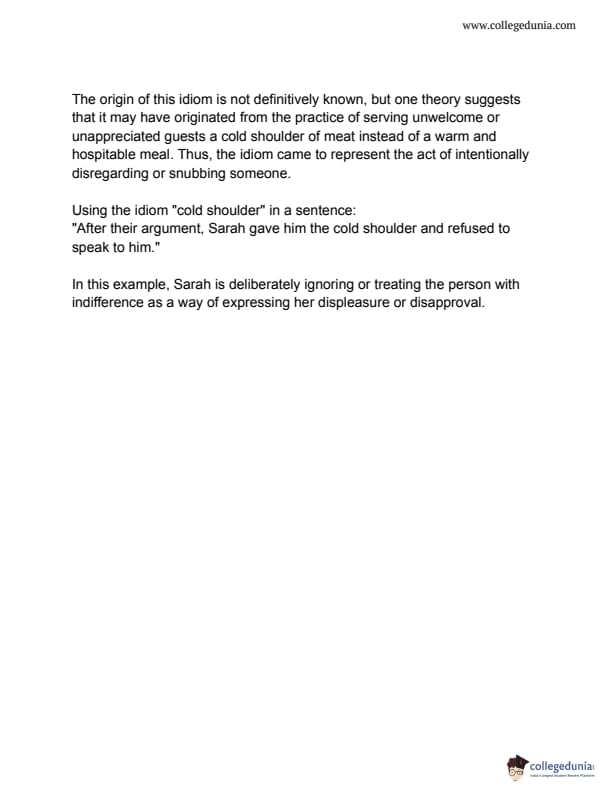
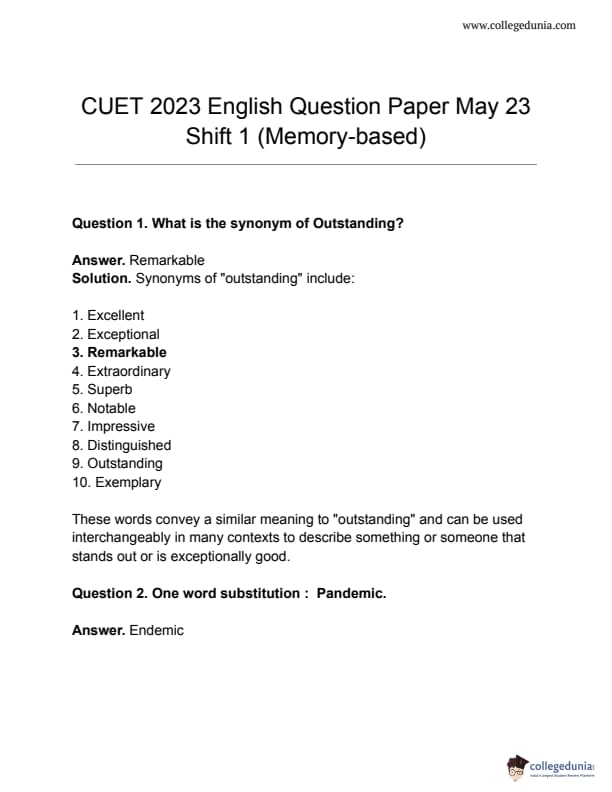
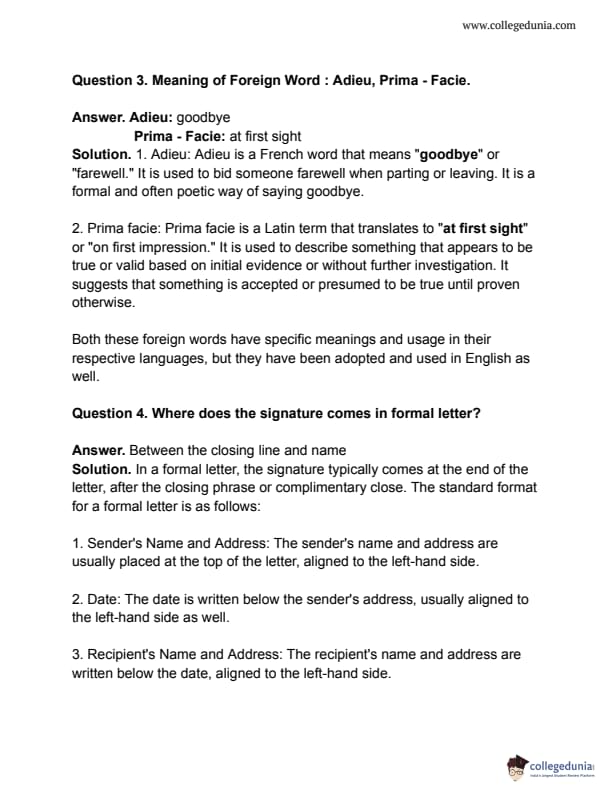
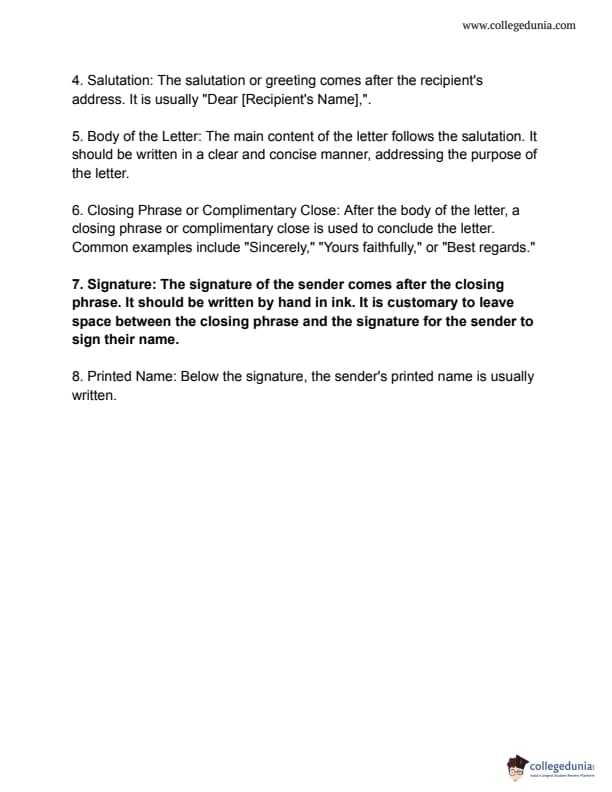
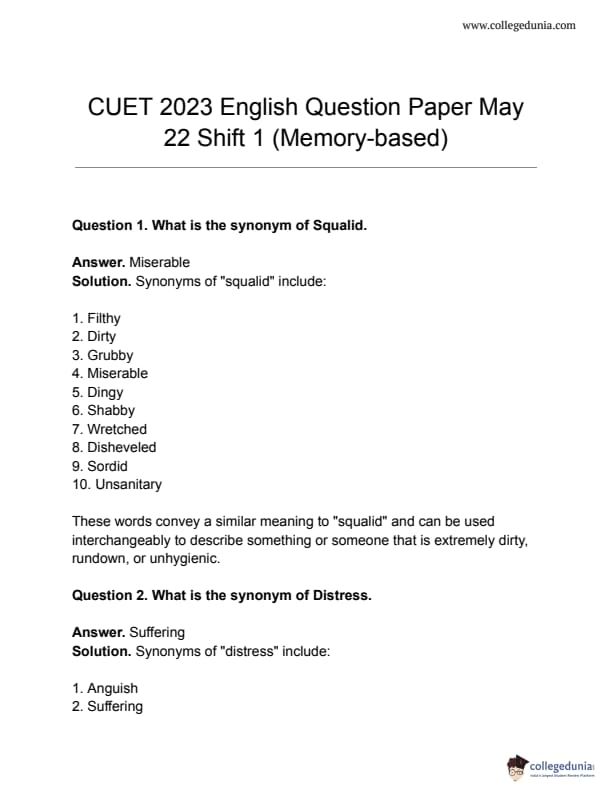
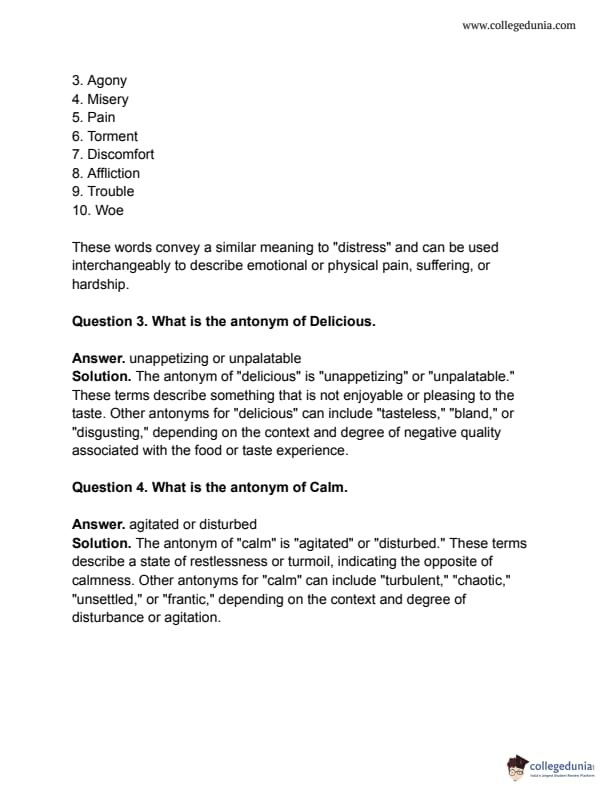
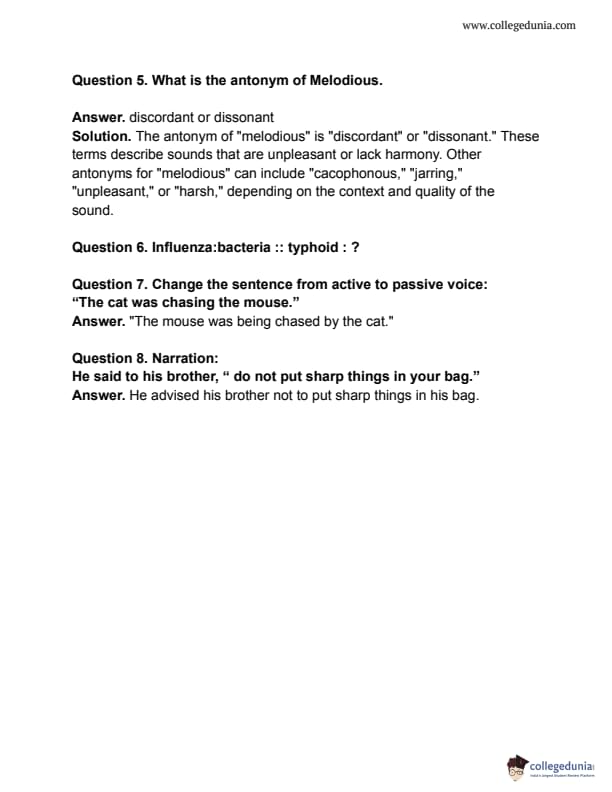
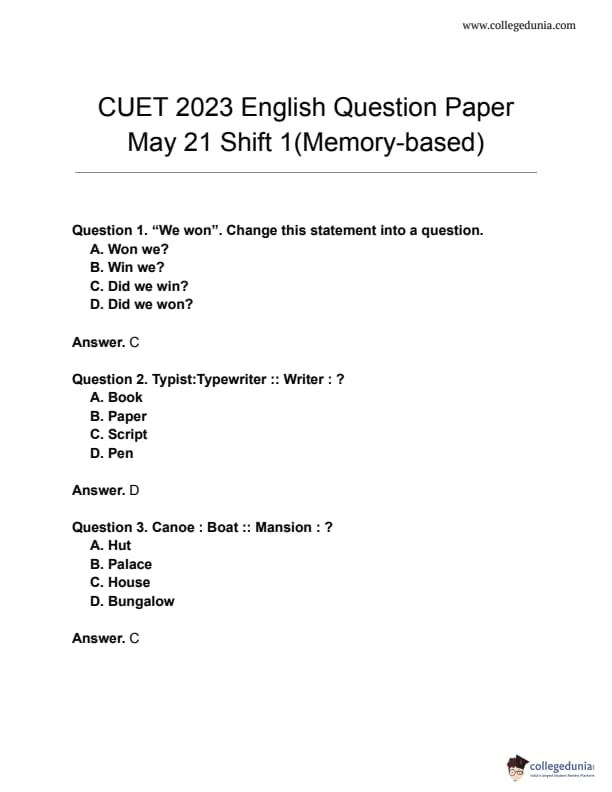
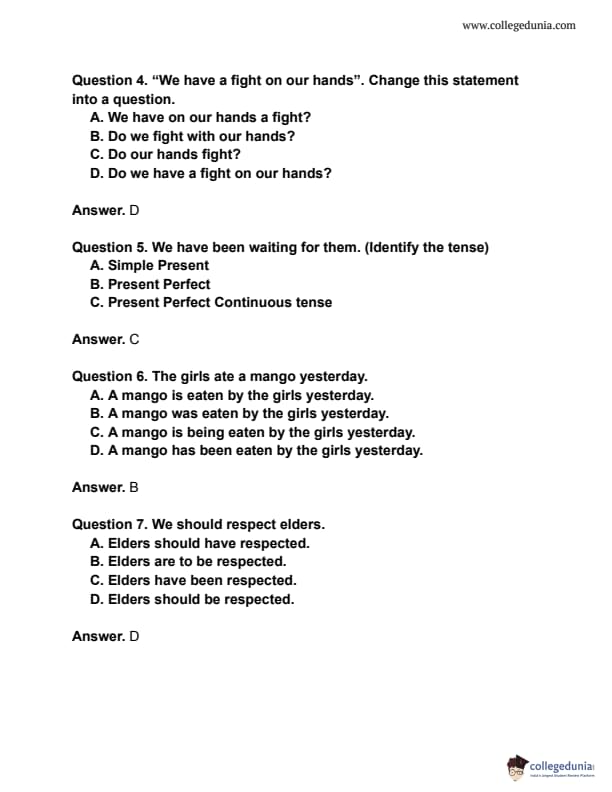
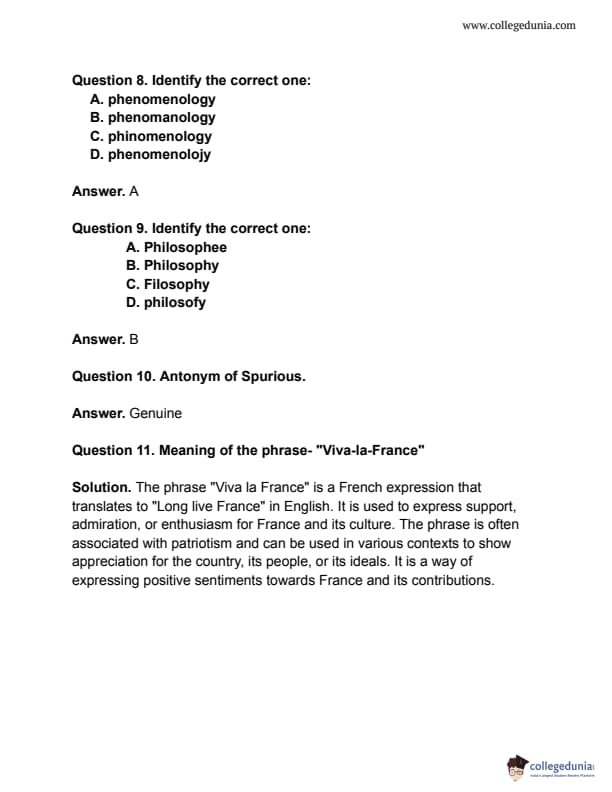
CUET Answer Key 2023 PDF for Other Subjects
Also Check:





Comments